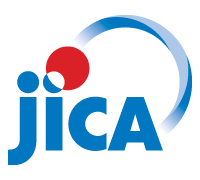As part of the concluding activities of the second phase of the United Nations cluster project on productive capacity for Lao PDR, the fifth Lao Organic Agriculture Forum (LOAF 5), implemented by UNCTAD, seeks to take stock of the Lao Organic Agriculture Strategies developed by the Department of Agriculture, which benefitted from recommendations from previous LOAFs (2012-2015) and supported by aid organizations.
LOAF 5 will explore partnerships to ensure the sustainability of the organic agriculture sector in Lao PDR while increasing coherence between different key public and private stakeholders, organizations and donors involved.
LOAF 5 will also provide a platform to facilitate Business-to-Business (B2B) meetings with producers and buyers by organizing a trade fair and field visits. It will be a unique opportunity to showcase and promote organic products for eventual trade. It will also encourage stakeholders to finalize arrangements concerning the institutional sustainability of the platform, as well as of the overall public and private leaderships of the organic sector in Lao PDR.
Objectives
1. Stock-taking of progress made on the organic agriculture strategy in Lao PDR, LOAF institutionalization and sustainability.
2. Develop partnerships to ensure the sustainability of the organic agriculture sector in Lao PDR.
3. Facilitate business-to-business meetings between buyers and producers through trade fairs.
Issues and Recommendations
1. Provision of extension services to continuously train and support farmers;
2. Value addition of the products for competitiveness;
3. Need to develop processing;
4. Separate platforms for those doing business with the private sector; and for producers/farmers;
5. Improve access to financial investment/capital;
6. Facilitate access to loans with a maximum interest rate of 7 per cent per annum;
7. Subsidies to offset production costs such as electricity, especially to reward the use of energy-efficient infrastructure;
8. Considering taxing industrial sector and support farmers; and
9. Provision of space for farmers' markets.
Meeting Date
15 – 16 juin 2016
Vientiane Plaza Hotel
Location
Vientiane, Lao People’s Democratic Republic
Add to calendar
Body
Co-organizer(s):
Japan International Cooperation Agency (JICA)
Langue(s)
English



 JICA
JICA